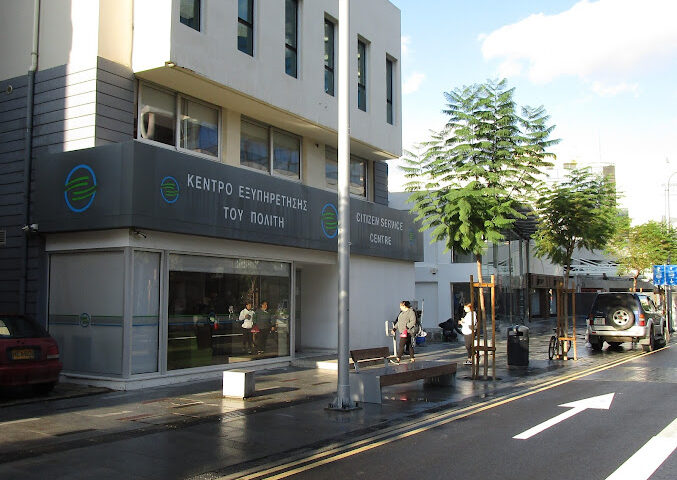Cyprus has the Estate Agents Law, which regulates most matters related to the industry, but people coming from different countries have their national system in mind, which, at times, creates confusion.
- Finding a property – It is normal abroad to pay a fee to an estate agent to find a suitable property. It may range from 1% to 2% on the purchase price as a finder’s fee. In such cases, there must also be an explicit provision in the agreement, should the parties agree, that the agent will not claim an additional commission from the seller. In Cyprus, this finder’s fee is rarely adopted. If someone wants a particular property, they should appoint several agents to find the best one. In the case of a successful deal, the agent will receive a commission from the seller [unless otherwise agreed].
The first may be beneficial to the buyer, but then, the buyer must appoint no more than 1-2 agents; otherwise, the agents will not be particularly interested.
- The commission in some European countries is split 50-50 between the buyer and the seller. In Cyprus, the commission is paid by the seller (unless otherwise agreed). If the seller refuses the deal, the estate agent might ask for a full commission or “expenses”, which is often unclear, towards advertising costs, hours to view the property etc. Some U.K. and Cyprus High Court rulings where the court might decide the full payment of a commission.
- The commission is that percentage agreed between the parties (or a fixed sum), and there is no limit. The agreement must be in writing; otherwise, the law states a 3% commission on the agreed price. The commission may be payable even if the deal does not go through, e.g., in case the seller changes their mind.
- It is normal abroad for an estate agent to offer an opinion on the property’s value to guide the seller as part of an ongoing deal. In Cyprus, this is also done, but an estate agent may not issue a written valuation report. Also, for an agent to get the client’s listing, they quote a high sales price to keep the seller happy, notwithstanding that they cannot sell it, or finds excuses for not being able to, causing damage to the seller.
Valuations are carried out by qualified valuers registered with the Technical Chamber. If not, do not bother.
- In Cyprus, especially amongst local sellers, it is unusual to give exclusivity of sales. The word exclusivity means that even if the owner/other agent sells the property, the seller must bear in mind that they owe a commission for the exclusive agent even if they did nothing.
There are many arguments for and against exclusivity appointments. It is normal in some European countries, but if you opt for such an alternative, place a time limit for the exclusivity, say six months. If the exclusive agent introduces a buyer and the potential buyer buys the property after the time limit expiration, the agent might have a case against the seller.
- It is not uncommon to have the buyer and seller agree to “cheat” the agent and thus save the 3-5% + VAT commission with the seller reducing his price accordingly. We have a couple of such cases, and we are now in court placing a “no transfer order” on the property.
- Use a registered estate agent. If not, the seller will not be able to deduct the commission from the sales price as a tax deduction, and the non-licensed “agent” might end up paying a fine or even a prison sentence for acting as an estate agent whilst not registered.
- There are complaints that local estate agents’ commission is high (3-8% on sales price depending on the circumstances) instead of the 1-2% charged abroad. But then the values here are a fraction of what the property values are abroad. If one reduces an agent’s commission, it will not be the agent’s priority to sell the property if they have similar properties with a higher commission.
- If you want to place your trust in a single agent, make sure what they will do in promoting your property. Visiting your agent at intervals (or through the website) to be updated is a good idea.
- Pass on the contract of sale to a lawyer, who will check the various items (building permit, waiver of mortgages, etc.). Foreign buyers, in particular when in Cyprus, do not do their due diligence. Mistakes do happen, however, regardless.
- Some lawyers may also ask for a commission when handling a sale deal, either by blackmailing the agent to get a “cut” or advising the buyer/seller the proposed deal is not to their benefit (and suggest other properties from which they can get a commission).
- An interesting case is coming up in the European courts with particular reference to a U.K. advisor/estate agent who got a 15% commission. A lawsuit has been filed against the foreign agent/intermediary and a bank since there is a claim that the bank has financed buyers who did not have repayment capability.
- The best method to test the market is public auctions. We tried this at a considerable cost and others, but it seems that it does not have acceptance, especially from locals.
- Another con job is introducing a third party [non-agent] to claim commission based on the pretext of promotion. Bear in mind that such a claim will be investigated by the Tax Authorities and will allow the commission deductible if they are persuaded that the scope and amount are correct.
- If the seller is asked to pay the commission abroad, especially in unknown banks/ countries, the seller may be involved in money laundering.
Several years ago, we published a booklet regarding estate agents’ duties and responsibilities (only in Greek, unfortunately).
Estate agents in Cyprus still have a long way to go to upgrade their profession.
Care is needed at every stage of the deal.










